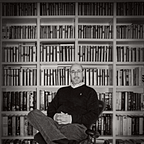What Happens When We Die?
What happens when we die? Since the dawn of civilization, this question has mystified philosophers, theologians, doctors, scientists, writers, and poets. The poet who towers among all other, William Shakespeare offered the most eloquent and thought-provoking answer in The Tragedy of Hamlet, Prince of Denmark published in 1602. In Act 3, Scene 1, Hamlet ponders death and whether he should take his own life in one of the greatest soliloquys in English literature:
To be, or not to be — that is the question:
Whether ’tis nobler in the mind to suffer
The slings and arrows of outrageous fortune
Or to take arms against a sea of troubles
And by opposing end them. To die, to sleep–
No more — and by a sleep to say we end
The heartache, and the thousand natural shocks
That flesh is heir to. ’Tis a consummation
Devoutly to be wished. To die, to sleep —
To sleep — perchance to dream: ay, there’s the rub,
For in that sleep of death what dreams may come
When we have shuffled off this mortal coil,
Must give us pause.
Perhaps it is that pair of brilliant lines, “For in that sleep of death what dreams may come / When we have shuffled off this mortal coil,” that provided the inspiration for the writers of Netflix’s supernatural series, Midnight Mass, to address the age-old question of death. In a pivotal scene (Episode 4, Lamentations), Erin Greene, a teacher, asks her friend, Riley Flynn who is haunted by a death he caused while driving under the influence: “What happens when we die, Riley.” He pauses and slowly explains:
“I don’t know. And I don’t trust anyone who tells us they do; but I can speak for myself, I guess… When I die my body stops functioning. Shut down. All at once or gradually. My breathing stops, my heart stops breathing. Clinical death. And a bit later, five minutes later, my brain cells start dying. But in the meantime, in between, maybe my brain releases a flood of DMT [(N,N-Dimethyltryptamine]. It’s the psychedelic drug released when we dream — so I dream. I dream bigger than I have ever dreamed before, because it is all of it — just the last dump of DMT all at once and my neurons are firing and I’m seeing this firework display of memories and imagination and I am just… tripping. I mean, really tripping balls because my mind’s rifling through the memories. You know — long and short-term, and the dreams mix with the memories, and… it’s a curtain call. The dream to end all dreams — one last great dream as my mind empties the fuckin’ missile silos and then… I stop. My brain activity ceases and there is nothing left of me. No pain. No memory, no awareness that I ever was, no… that I ever hurt someone… that I ever killed someone. Everything is as it was before me. And the electricity disperses from my brain till it’s just dead tissue. Meat. Oblivion. And all of the other little things that make me up, they… the microbes and bacterium and the billion other little things that live on my eyelashes and in my hair and in my mouth and on my skin and in my gut and everywhere else, they just keep on living… and eating. And I’m serving a purpose: feeding life. And I’m broken apart and all the littlest pieces of me are just recycled, and I’m [in] billions of other places and my atoms are in plants and bugs and animals, and I am like the stars that are in the sky, there one moment and then just scattered across the goddamn cosmos.”
One can imagine the ghost of Hamlet, just off screen, smiling and nodding in agreement.
________________________________________________________________
If you enjoyed this essay, you might enjoy my book, Serendipitous Discoveries from the Bookshelf, based on my popular blog, Atkins Bookshelf. The blog explores the world of ideas — through books, movies, music, quotations, and the English language — for the intellectually curious. At the heart of Atkins Bookshelf is a lifelong love of books and literature; its goal is to educate, entertain, and inspire.
The book can be found here.
The blog can be found here.
